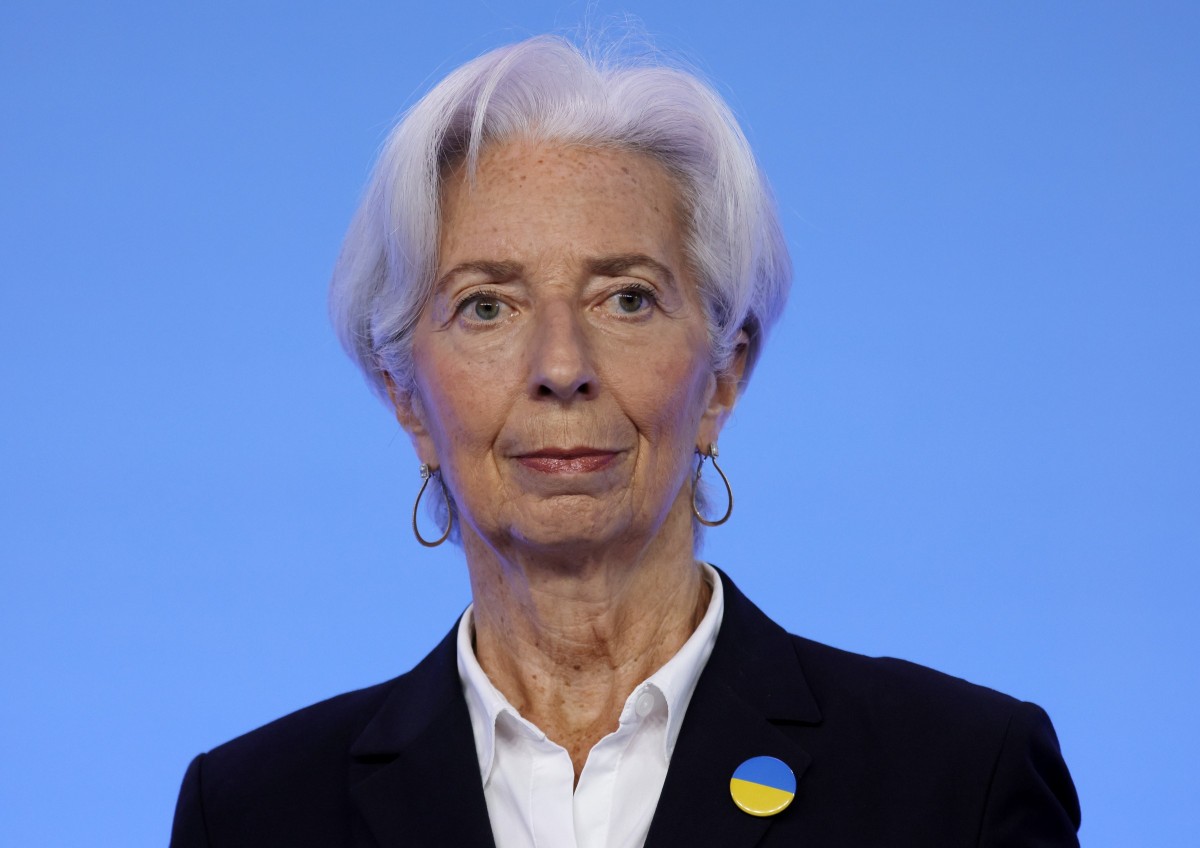Tuesday, April 12, 2022 1:30 PM EST
The bank lending survey shows signs of tighter financial conditions, which are likely to add to a slowing economy in the second quarter. This adds to the ECBs concerns about how quickly to tighten policy with inflation at 7.5% and an economy slowing down.

Christine Lagarde, president of the European Central Bank
The European Central Bank's (ECB's) bank lending survey reveals somewhat tougher credit standards for firms applied in the first quarter, driven by risks to the outlook. Banks expect standards to become even tighter for the second quarter on the back of the Ukraine war and monetary conditions tightening, adding to a cooling investment environment in the eurozone. Loan demand from firms remained strong, but not necessarily for the right reasons though. Working capital needs were the main driver of loan demand, reflecting supply chain problems and liquidity needs according to the ECB. Borrowing for investment actually moderated in the first quarter, which is a further indication of a slowing economy.
For households, the survey reports a more modest tightening of financial conditions, which is also set to continue in the months ahead. The demand for borrowing from consumers continued to increase though. For mortgages, this was mainly because of low interest rate levels, which are vulnerable to recent strong increases in market rates.
Financial conditions for banks deteriorated in the first quarter on the back of increased uncertainty and tightening monetary conditions. The monetary stance from the ECB had a positive net impact on funding access, but expect this to turn around when asset purchasing programs draw to a close. Overall, banks reported that the ECB's monetary stance was having a less positive impact on lending volumes and funding conditions as it is winding down its asset purchase programs.
The results from the survey are likely to give a bit of a dovish warning to the ECB. Financial conditions are broadly tightening at the moment, which is going to have a dampening impact on bank lending in the months ahead. In an economy already slowing down on the back of the war in Ukraine, this adds to the pickle that the ECB finds itself in: act on the high current inflation rate to make sure inflation expectations remain anchored, or keep policy relatively accommodative to not worsen the economic slowdown. More from the ECB on Thursday.
Disclaimer: This publication has been prepared by the Economic and Financial Analysis Division of ING Bank N.V. (“ING”) solely for information purposes without regard to any ...
more
Disclaimer: This publication has been prepared by the Economic and Financial Analysis Division of ING Bank N.V. (“ING”) solely for information purposes without regard to any particular user's investment objectives, financial situation, or means. ING forms part of ING Group (being for this purpose ING Group NV and its subsidiary and affiliated companies). The information in the publication is not an investment recommendation and it is not investment, legal or tax advice or an offer or solicitation to purchase or sell any financial instrument. Reasonable care has been taken to ensure that this publication is not untrue or misleading when published, but ING does not represent that it is accurate or complete. ING does not accept any liability for any direct, indirect or consequential loss arising from any use of this publication. Unless otherwise stated, any views, forecasts, or estimates are solely those of the author(s), as of the date of the publication and are subject to change without notice.
The distribution of this publication may be restricted by law or regulation in different jurisdictions and persons into whose possession this publication comes should inform themselves about, and observe, such restrictions.
Copyright and database rights protection exists in this report and it may not be reproduced, distributed or published by any person for any purpose without the prior express consent of ING. All rights are reserved. ING Bank N.V. is authorised by the Dutch Central Bank and supervised by the European Central Bank (ECB), the Dutch Central Bank (DNB) and the Dutch Authority for the Financial Markets (AFM). ING Bank N.V. is incorporated in the Netherlands (Trade Register no. 33031431 Amsterdam). In the United Kingdom this information is approved and/or communicated by ING Bank N.V., London Branch. ING Bank N.V., London Branch is deemed authorised by the Prudential Regulation Authority and is subject to regulation by the Financial Conduct Authority and limited regulation by the Prudential Regulation Authority. The nature and extent of consumer protections may differ from those for firms based in the UK. Details of the Temporary Permissions Regime, which allows EEA-based firms to operate in the UK for a limited period while seeking full authorisation, are available on the Financial Conduct Authority’s website.. ING Bank N.V., London branch is registered in England (Registration number BR000341) at 8-10 Moorgate, London EC2 6DA. For US Investors: Any person wishing to discuss this report or effect transactions in any security discussed herein should contact ING Financial Markets LLC, which is a member of the NYSE, FINRA and SIPC and part of ING, and which has accepted responsibility for the distribution of this report in the United States under applicable requirements.
less
How did you like this article? Let us know so we can better customize your reading experience.




